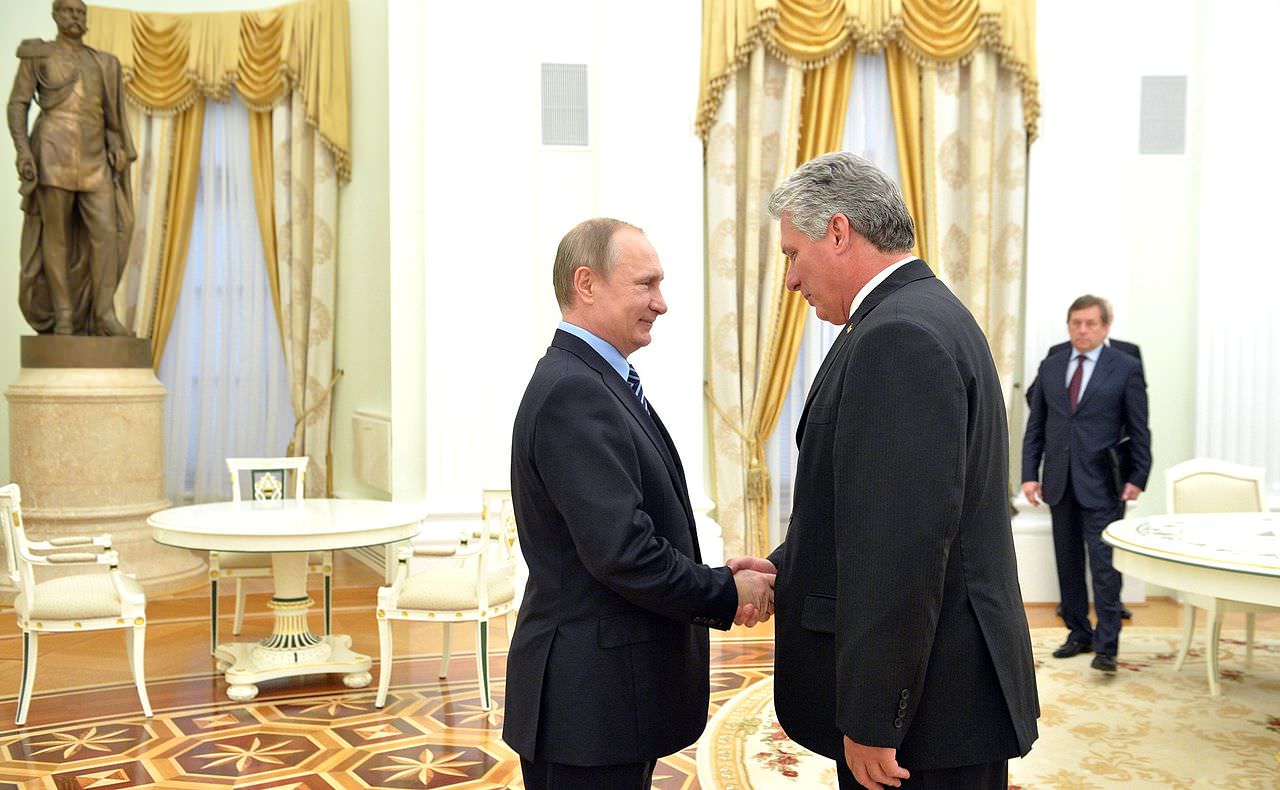World
Havana-Moscow Cold War Alliance Revived Amid Ukraine
By Jake Beardslee · July 13, 2023

As the world grapples with the ongoing conflict in Ukraine, Cuba has emerged as a staunch supporter of Russia, marking a significant revival of their Cold War-era alliance. The two nations, both under U.S. sanctions, are seeking to strengthen their economic ties through increased trade and investment.
In a recent display of solidarity, Cuba welcomed the Russian naval vessel Perekop, the first official visit by a Russian warship in years, with a cannon fire salute. This event is seen as a symbolic reaffirmation of the strengthening ties between the two countries.
Cuban President Miguel Díaz-Canel, who inaugurated a statue of Fidel Castro alongside Vladimir Putin in Moscow last November, has publicly defended Russia’s actions in Ukraine. “We are condemning, we are rejecting the expansion of NATO towards Russia’s borders,” he told Russia Today. He also critiqued the sanctions imposed on Russia, stating, “We condemn all the measures and sanctions that have been applied as a way to coerce the Russian Federation.”
Since the onset of the Ukraine crisis, Russia and Cuba have signed several agreements aimed at bolstering their economic relationship. These include plans to open the first supermarket selling Russian food in Cuba, increase oil shipments to the island, and develop a beachside community outside Havana. This marks the most significant Russian investment in Cuba in decades.
In February, Russia donated 25,000 tons of wheat to Cuba, with the then Russian Ambassador to Cuba, Andrei Guskov, stating that aid would continue to flow. “Russia and Cuba continue developing their strategic relationship based on the historic friendship, solidarity and mutual sympathy between our two countries,” Guskov said.
However, despite suggestions from Russian officials about re-establishing a military presence on the island, some analysts believe that Moscow no longer has the capability to do so. In a conversation with CNN’s Patrick Oppmann, Sergey Radchenko, a professor at Johns Hopkins School of Advanced International Studies, views these threats as more of a psychological warfare tactic against the United States, stating, “I think these kinds of threats are used more for taunting the United States…It’s a kind of a form of psychological psychological warfare. Kind of psyop against the United States.”
Light Wave commentary
The growing alliance between Cuba and Russia amid the Ukraine conflict has revived elements of their Cold War partnership. While Cuba’s support for Russia and their strengthening economic ties are evident, it is important to recognize the limitations of their collaboration. Russia’s ability to reestablish a military presence in Cuba appears overstated, serving more as a psychological warfare tactic. The situation warrants attention, but it is crucial to maintain a nuanced understanding of the extent and implications of this revived alliance within the broader geopolitical landscape. This is not your father’s Cuba-Russia crisis.